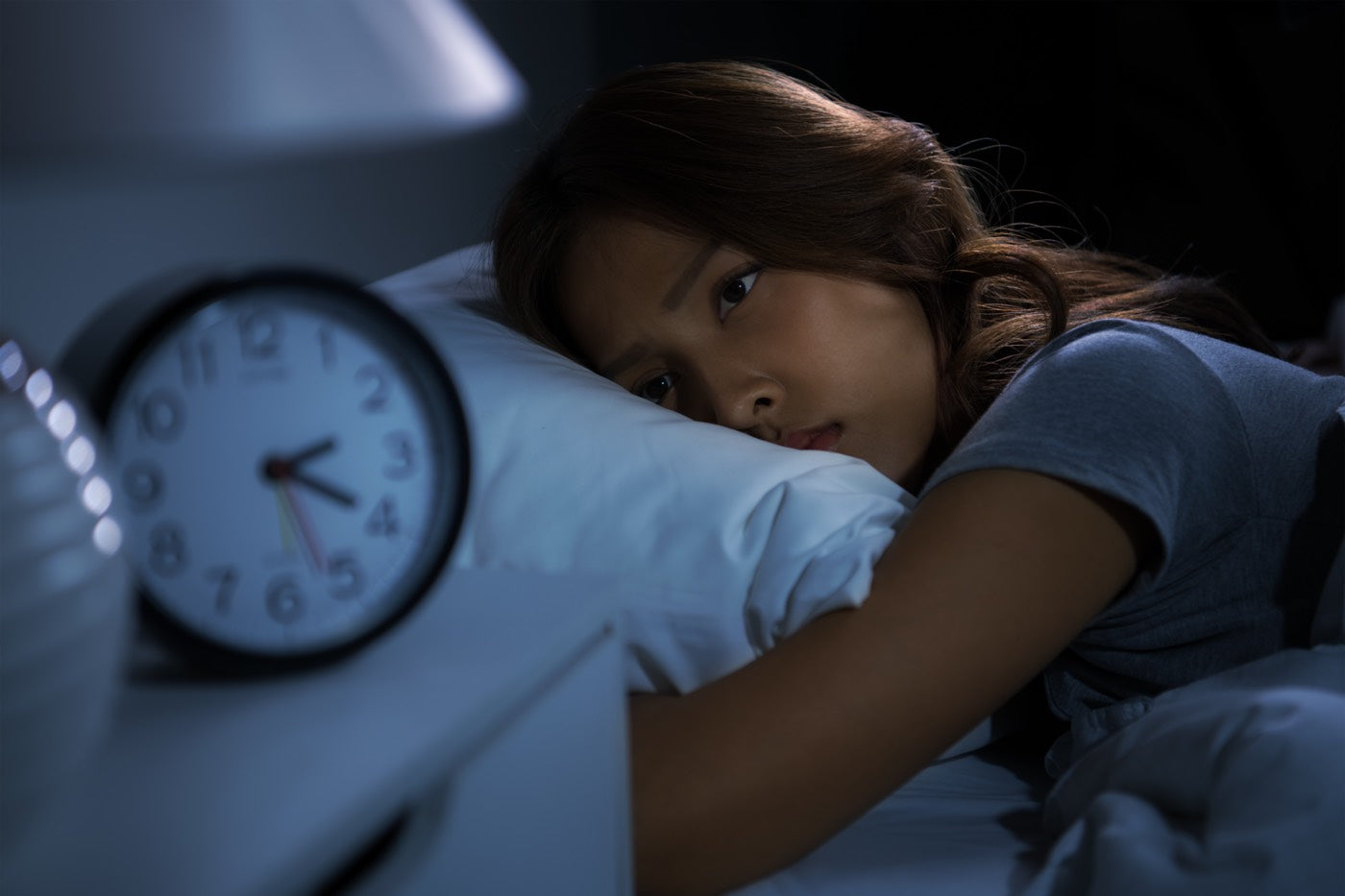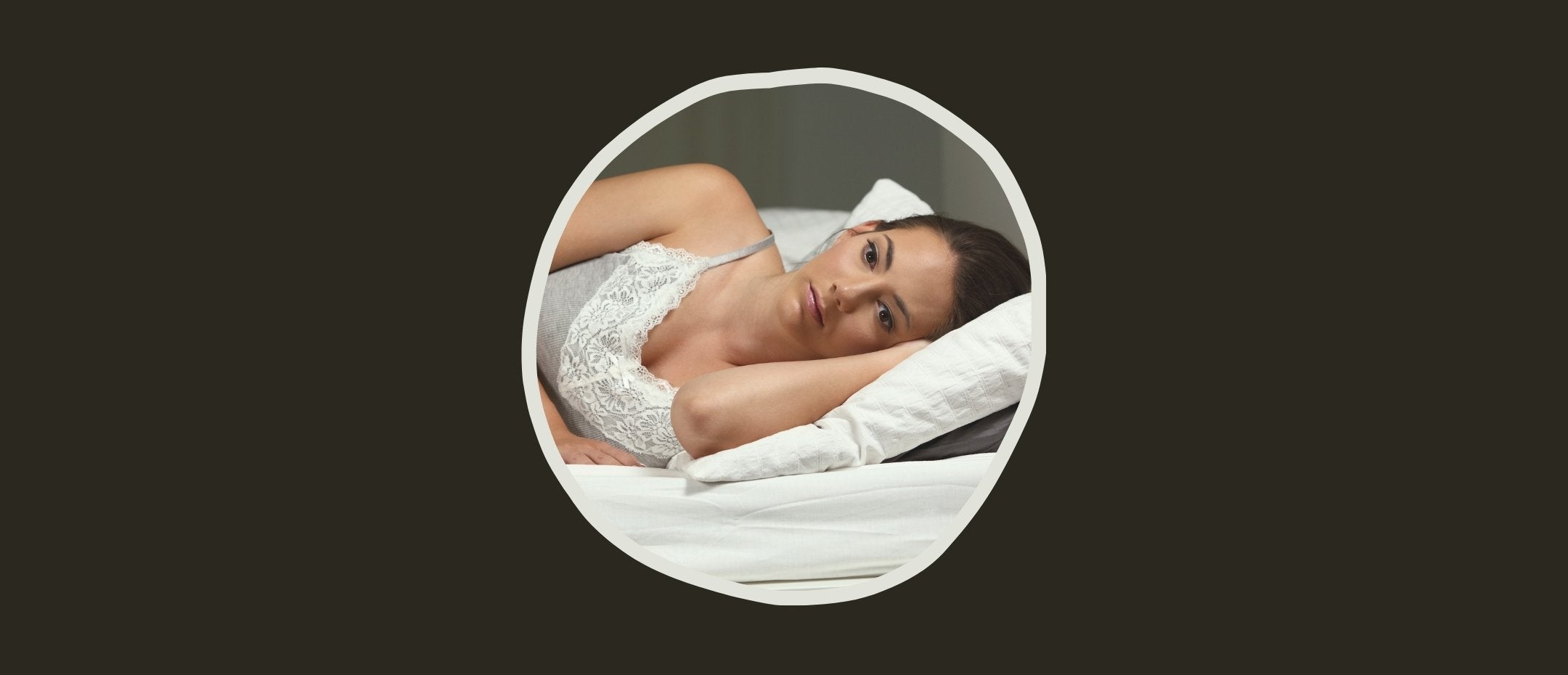Welcoming a new bundle of joy into the world is an exciting time that brings many changes for new parents, especially a mother who has had her baby in her womb for nine months.
One of the many changes, and possibly the most obvious, is a change in the sleep pattern of the new parents as a baby wakes at all hours for various needs. Insomnia is common during pregnancy, specifically the 3rd trimester. But, women also have insomnia after giving birth.

Postpartum insomnia: what is it?
Insomnia is classified as having difficulty falling asleep or staying asleep. The most common causes of insomnia include stress, an irregular sleep schedule, poor sleep habits, and depression - all of which have the potential to occur after the birth of a child. Horrible postpartum insomnia leaves parents unable to fall asleep, even when the baby is sleeping.
Bringing a newborn home often leaves parents, especially the mother, feeling anxious to fall asleep in fear that she will not hear the child crying when they need a diaper change, to be fed, or just simply need their mama.
This type of insomnia after delivery can occur at various times, such as insomnia + 3 months postpartum, insomnia + 4 months postpartum, and even insomnia + 6 months postpartum.
What causes postpartum insomnia?
Unless you experienced a home birth, you have probably spent your 2-3 day stay in the hospital post-delivery anticipating going home to finally rest.
From the bright lights to the nurses constantly coming in and out of your room checking your vitals and ensuring you are healing appropriately. You probably cannot wait to get home to love your new baby and finally get some sleep, right?
A new mother receives an average of 5 to 6 hours of sleep per night. While this may seem like a sufficient amount of sleep for many, these 5 to 6 hours are broken up into smaller increments of time due to nighttime feedings and diaper changes. In addition, they are often left unable to fall back to sleep as a result of postpartum insomnia - but what causes postpartum insomnia?
There is a multitude of factors that play a part in a new mother suffering from postpartum insomnia after childbirth including:

It is no secret that pregnancy affects hormones and they do not just “bounce back” after delivery, it takes time for the body to balance out hormones.
Women’s hormones affect your body’s internal clock, telling you when it is time to wake up and fall asleep. Therefore, a significant change in hormones leaves a woman suffering and unable to sleep when the time is appropriate.
No one can fall asleep when they are hot, sweaty, and uncomfortable. Many postpartum women experience night sweats due to the influx of hormones coursing through their body, leaving them unable to remain comfortable regardless of how cold the sleeping space is.
1 in 7 women experiences postpartum mood disorders, such as depression and postpartum depression. These mood disorders add an undue amount of stress resulting in the inability to fall asleep or stay asleep.
Whether you have just welcomed your first child or your 4th, bringing a baby into the world is an overwhelming experience.
Oftentimes the mother spends countless hours worrying and once they finally drift off to sleep the baby wakes up. The cycle seems to repeat itself for many new parents leaving them in a never-ending circle of an improper sleep/wake cycle and feeling more overwhelmed than ever.

How long does insomnia after delivery last?
The onset of postpartum insomnia is often immediate for most new parents. It is common for the first 6 weeks post-delivery to experience insomnia or difficulty sleeping. While it is normal for the wake/sleep cycle to be affected in the first several weeks, postpartum insomnia can last months if it is left untreated.
How to treat postpartum insomnia?
There is no “one size fits all” postpartum insomnia + treatment cure-all. However, there are many things to help new mothers cope and adjust.
The advice most often given to new parents is, “sleep when the baby sleeps”. This is easier said than done as there is often left to be done once the baby finally falls asleep, like dishes, laundry, and other various tasks. The household chores can wait. Even if you do not fall asleep, lying down and resting can help you to feel relaxed and recharged.
If you have a partner that is willing and able to help in all aspects, take advantage of the help. If you are breastfeeding, pump and prepare bottles for your partner to wake up for some of the nighttime feedings so that you can get a few extra hours of sleep.
Experts recommend making your bedroom a sleep haven to train your brain to understand this is a space for calm and sleep. Remove all electronics such as the television, gaming consoles, and remove all work-related items.
If you used a Polysleep wedge pillow during your pregnancy, continuing to use it postpartum might provide you with comfort. You can also help your new baby learn where the “sleep space” is by not playing and overstimulating him/her in the bedroom, only taking the baby into the bedroom to go to sleep and play in the other areas of the home.
This is another aspect of having a newborn that is easier said than done as it is stressful adjusting to the new schedule, waking all hours of the night, and lack of sleep. When the parents stress, the baby can sense this and feed off of this stress, making them more agitated and making it harder for them to calm down and fall asleep.
When to consult a professional for sleeplessness?
New parents are often sleep-deprived from the erratic schedule of a newborn, so it's often easy for them to fall asleep when the baby finally falls asleep.
However, this is not true for all. The first few weeks postpartum are an adjustment period, but if the inability to fall asleep or stay asleep persists for more than 3 to 4 weeks, it's recommended to seek professional help.

Tips to improve insomnia after delivery
Several things can be done to improve the feelings of insomnia after delivery. Many new parents feel overwhelmed with the feelings of finding the balance between making sure the baby is taken care of, all of the household work such as laundry, dishes, cleaning, and cooking is done, and taking care of yourself and your needs. It can become quite challenging for most new parents, even if they have help.
The added stress from trying so hard to find that balance results in anxiety and enhances the sleep deprivation risk as parents feel the need to stay up after the baby falls asleep to get everything done. All new parents need to take a step back and remember that the housework is much less important than taking a few minutes to care for yourself and put yourself first.
Taking a morning and evening walk can help reduce the amount of stress. Getting outdoors and breathing in the fresh air helps to relax you. Not only is the fresh air good for you, but it is good for your new little love as well.
In addition to taking frequent walks, you can also reduce the amount of caffeine you are taking. The more tired you feel, the more caffeine you feel that you need.
Health Canada experts recommend only drinking up to 400 mg of coffee per day or 3 8 oz of brewed coffee per day. It’s also a good idea to avoid caffeine after 2 pm. While you may feel awake during the day, too much caffeine can have a negative effect and keep you awake through the night as well. Along with limiting caffeine, you can also try melatonin for postpartum insomnia.
Utilizing deep breathing techniques can help to relax your body to prepare you for bed. Follow the steps below to achieve a good night of rest:
- Lay flat on your back; place one hand on your stomach and the other on your chest.
- Inhale deeply through your nose.
- Hold your breath for 3 seconds.
- Slowly exhale through your mouth.
- Repeat this process until you feel relaxed and ready to fall asleep.
People who utilize the breathing technique above often feel very relaxed and fall asleep during the process.
Sometimes, all it takes is new bedding and accessories to relieve insomnia. A Polysleep Wedge Pillow and a new Zephyr mattress might refresh your sleeping environment to offer you a relaxing night's sleep.
Postpartum insomnia is very hard on a person in addition to all the added stresses of welcoming a new baby into the world. Do not be afraid to reach out for help when you begin feeling overwhelmed or overly stressed out. Keeping yourself healthy is the best thing you can do for yourself and your child.
Learn more about the Polysleep mattress!











